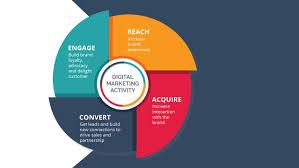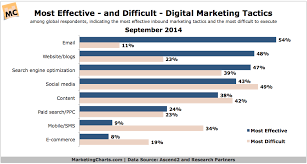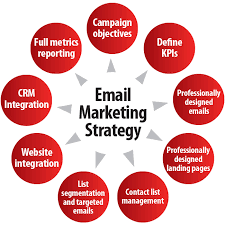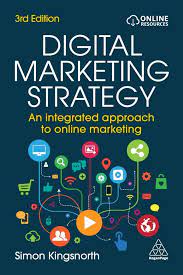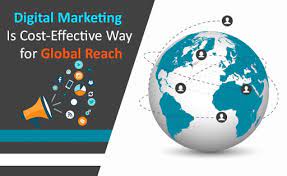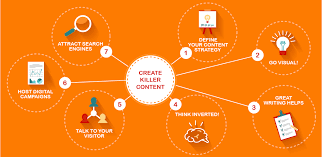The Importance of Digital Brand Strategy
In today’s digital age, having a strong brand presence online is essential for businesses looking to thrive in a competitive market. A well-crafted digital brand strategy is the key to establishing and maintaining a successful online presence that resonates with your target audience.
Defining Your Brand Identity
A digital brand strategy starts with defining your brand identity – who you are, what you stand for, and what sets you apart from your competitors. This includes elements such as your brand values, voice, personality, and visual identity.
Building Brand Awareness
Once your brand identity is established, the next step is to build brand awareness through various digital channels. This may include creating engaging content for social media platforms, running targeted online advertising campaigns, and optimising your website for search engines.
Engaging with Your Audience
Effective digital brand strategy goes beyond just promoting your products or services – it’s about engaging with your audience on a deeper level. This can involve creating meaningful interactions through social media, responding to customer feedback promptly, and providing valuable content that adds value to your audience’s lives.
Measuring Success
An essential aspect of any digital brand strategy is measuring its success through key performance indicators (KPIs). By tracking metrics such as website traffic, social media engagement, and conversion rates, you can evaluate the effectiveness of your branding efforts and make data-driven decisions to improve results.
Adapting to Change
In the fast-paced world of digital marketing, it’s crucial to stay agile and adapt your brand strategy to evolving trends and consumer behaviour. Regularly reviewing and refining your approach will help ensure that your brand remains relevant and competitive in the ever-changing digital landscape.
In conclusion, a well-defined digital brand strategy is essential for businesses looking to establish a strong online presence and connect with their target audience effectively. By investing time and resources into developing a comprehensive branding strategy tailored to the digital realm, businesses can position themselves for long-term success in today’s competitive marketplace.
Essential FAQs on Crafting an Effective Digital Brand Strategy
- What is a digital brand strategy?
- Why is a digital brand strategy important for businesses?
- How can I develop an effective digital brand strategy?
- What are the key components of a successful digital brand strategy?
- How can social media be integrated into a digital brand strategy?
- What role does content marketing play in a digital brand strategy?
- How can I measure the success of my digital brand strategy?
What is a digital brand strategy?
A digital brand strategy is a comprehensive plan that outlines how a business will establish and maintain its brand presence in the digital realm. It encompasses defining the brand’s identity, values, and unique selling points, as well as determining how to effectively engage with the target audience across various online channels. A well-crafted digital brand strategy not only focuses on promoting products or services but also on building meaningful relationships with customers through interactive and relevant content. By aligning digital initiatives with overall business goals, a digital brand strategy aims to enhance brand awareness, drive engagement, and ultimately contribute to long-term success in the competitive online landscape.
Why is a digital brand strategy important for businesses?
A digital brand strategy is crucial for businesses in today’s digital landscape as it serves as the foundation for establishing a strong online presence and connecting with target audiences effectively. By defining a clear brand identity and communicating it consistently across digital channels, businesses can differentiate themselves from competitors, build brand awareness, and foster meaningful relationships with customers. A well-crafted digital brand strategy not only helps businesses stand out in a crowded marketplace but also enables them to adapt to changing consumer behaviours and market trends, ultimately driving long-term success and growth.
How can I develop an effective digital brand strategy?
Developing an effective digital brand strategy involves a strategic approach that encompasses various elements to ensure success in the online realm. To begin, it is crucial to define your brand identity by clearly articulating your values, voice, and visual identity. Conducting thorough market research to understand your target audience’s preferences and behaviours is also essential. From there, crafting engaging content tailored to different digital channels, such as social media and websites, can help build brand awareness and foster meaningful connections with your audience. Regularly monitoring key performance indicators (KPIs) and adapting your strategy based on data-driven insights will further enhance the effectiveness of your digital brand strategy over time.
What are the key components of a successful digital brand strategy?
When considering the key components of a successful digital brand strategy, several crucial elements come into play. Firstly, a clear and compelling brand identity that reflects the values and personality of the business is essential. Consistent branding across all digital touchpoints, including websites, social media, and email marketing, is vital for building brand recognition and trust. Additionally, engaging content that resonates with the target audience, effective use of data analytics to track performance metrics, and staying agile to adapt to changing trends are all integral parts of a successful digital brand strategy. By focusing on these key components and continually refining their approach, businesses can create a strong online presence that drives engagement and fosters long-term customer loyalty.
How can social media be integrated into a digital brand strategy?
Integrating social media into a digital brand strategy is crucial for enhancing brand visibility, engaging with target audiences, and driving meaningful interactions. By leveraging the power of social platforms such as Facebook, Instagram, Twitter, and LinkedIn, businesses can create compelling content that resonates with their followers, build a community around their brand, and foster authentic relationships. Social media also offers valuable opportunities for customer feedback, market insights, and real-time communication, allowing brands to adapt and refine their strategies based on audience preferences and trends. When integrated effectively into a digital brand strategy, social media becomes a powerful tool for amplifying brand messaging, increasing brand awareness, and ultimately driving business growth in the digital landscape.
What role does content marketing play in a digital brand strategy?
Content marketing plays a pivotal role in a digital brand strategy by serving as the fuel that drives engagement, builds brand awareness, and establishes credibility with the target audience. Through strategic content creation and distribution across various digital channels, businesses can deliver valuable and relevant information to their audience, positioning themselves as industry experts and thought leaders. Effective content marketing not only attracts and retains customers but also helps in nurturing relationships, driving conversions, and ultimately contributing to the overall success of a brand’s online presence.
How can I measure the success of my digital brand strategy?
Measuring the success of your digital brand strategy is crucial for evaluating the effectiveness of your efforts and making informed decisions to drive future growth. Key performance indicators (KPIs) play a vital role in assessing various aspects of your strategy, such as website traffic, social media engagement, conversion rates, brand sentiment, and customer retention. By tracking these metrics regularly and analysing the data, you can gain valuable insights into how well your digital brand strategy is performing and identify areas for improvement. Additionally, tools like Google Analytics, social media analytics platforms, and customer feedback surveys can provide valuable data to help you measure the impact of your branding efforts accurately.

